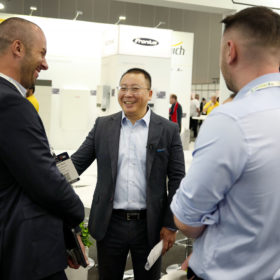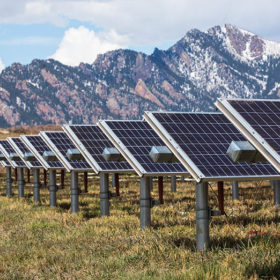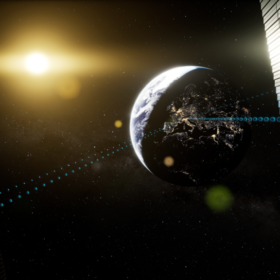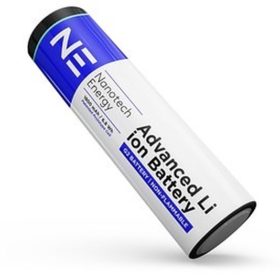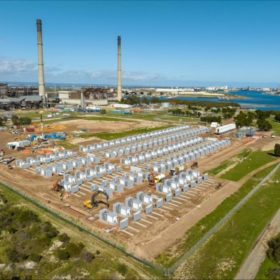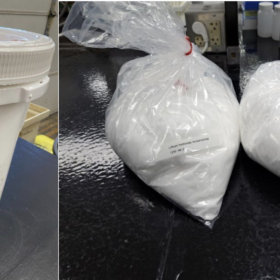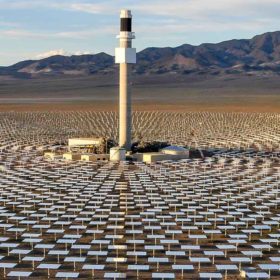Australia-adapted rooftop module from AE Solar launches for distribution in November
Set to land on Australian shores in Dec. 2022, German solar panel manufacturer AE Solar has modified a panel to meet the continent’s particular stress factors, including our far higher temperatures, UV doses and humidity. “Since we think it’s a kind of localised, or environmentally adapted module, we think it can be a selling factor for this particular line,” AE Solar’s Head of R&D, Dr Hamed Hanifi, told pv magazine Australia during Melbourne’s All Energy conference last week.
Tracking towards complete Trina solutions in the solar sphere
New releases, a confluence of auspicious milestones, and output growing by gigawatts gave Trina Solar in Australia cause to celebrate at All-Energy this week.
Proposed 330 MW Victorian solar farm opts for 500 MWh Swiss battery
Swiss energy storage company Energy Vault has been awarded the contract to supply the in development 330 MW Meadow Creek Solar Farm in Victoria with a 250 MW/500 MWh battery energy storage system.
Cooling down solar modules by increasing space between panel rows
A US research team claims to have demonstrated that increasing the spacing of solar panels between rows improves PV system efficiency and economics by allowing airflow to cool down the modules. The method could improve a project’s LCOE by as much as 2.15% in certain climates.
Space-based solar power for terrestrial energy needs
The Cassiopeia solar project aims to use the sunlight collected by a space satellite for terrestrial energy needs. The electricity generated would be converted to radio frequency microwave radiation transmitted to an antenna on Earth. The initial LCOE would be $73.4 (USD 47.8)/MWh, according to a UK study.
Algae could boost solar panel efficiency by 4%
A Swedish team has inaugurated a pilot facility to mass produce algae material that can potentially boost silicon solar module efficiency by 4% and thin film by 36%. The algae are added to the encapsulant in silicon-based modules or to the anti-reflective coating on the glass of thin film modules. The team estimates the resulting modules would be 3.9% cheaper.
Non-flammable, graphene-based lithium-ion batteries approaching stationary storage market
US-based Nanotech Energy’s graphene battery uses proprietary electrodes with a thermally stable separator, and non-flammable electrolyte that is said to be inexpensive to manufacture. The technology is said to be superior in terms of safety and competitive in terms of cell performance.
Thermal batteries to power gas-plant steam turbines subject of $1 million feasibility study
In a project where the old world of energy meets the new, AGL will investigate the technical and financial feasibility of using thermal batteries to provide the steam for a 200 MW turbine at South Australia’s Torrens Island Power Plant, which usually run on gas.
Australian company’s novel green lithium concept yields battery-grade product in Germany
ASX-listed Vulcan Energy, a company working on a project in Germany that it says will deliver ‘zero carbon’ lithium by combining geothermal plants with lithium electrolysis, today announced its pilot produced high grade lithium hydroxide which ‘easily exceeds’ battery grade specification.
Solar at night
Director of the Australian Solar Thermal Research Institute, Dominic Zaal, offers a deep dive into the capabilities of concentrated solar thermal technology, including what has been proven by global projects so far and how the all important Power Purchasing Agreements stack up.

